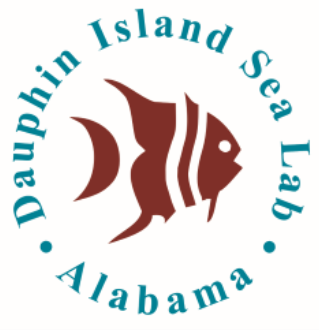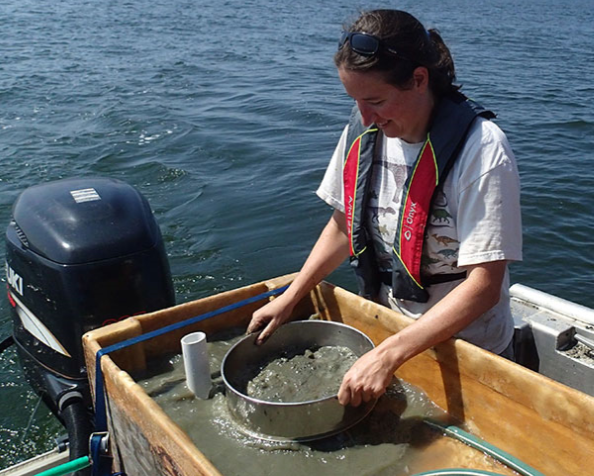Researcher Profile: Dr. Kelly Dorgan, Dauphin Island Sea Lab
January 1, 2018
Kelly Dorgan, Ph.D.
Senior Marine Scientist
Dauphin Island Sea Lab
Education: 2007 Ph.D. University of Maine
Dr. Kelly Dorgan joined the faculty at Dauphin Island Sea Lab in the fall of 2013.
Dr. Dorgan is interested in how worms and other benthic organisms interact with their environments. Burrowing animals are numerically abundant and ecologically important, both in trophic dynamics and as ecosystem engineers, dramatically altering their physical and chemical environments. Because the opacity of sediments (muds and sands) limits direct observation, Dorgan uses tools from engineering and physics to develop new methods in order to integrate theory and experiments. Muds behave elastically due to the gel-like organic material that fills spaces between the grains, and her work has shown that worms extend burrows by fracturing this organic matrix.

Sands are granular materials with very different mechanical responses to burrowers than muds. Even within muds, burrowers exhibit different behaviors based on body size and sediment properties. Dr Dorgans research therefore focuses on the mechanical properties of sediments as well as the diverse morphologies and behaviors of burrowing animals.
Dr. Dorgan's lab is currently working on several different projects on infauna and sediment properties. They are studying the impacts of benthic infauna on acoustic and geotechnical properties of sediments, focusing on how different functional groups of organisms modify their physical environment. This work is funded by the Office of Naval Research, and has implications for improving techniques to use acoustics to map the seafloor and to find buried objects in sediments with high biological productivity. Additionally, Dr. Dorgan, Dr. Bill Walton, and graduate student Sarah Cole are studying mud blister worms that bore into oyster shells to develop ways to minimize the damage of these worms to farmed oysters along the gulf coast. Dr. Dorgan and graduate student Kara Gadeken are studying how daily changes in oxygen in shallow coastal ecosystems like seagrass beds affect behaviors of infauna and consequently the way the function in these ecosystems.

